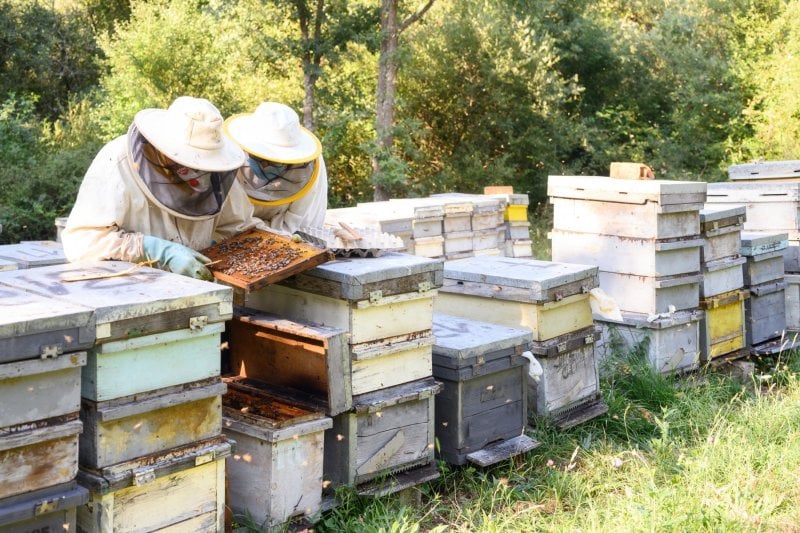Five Tips for Beginner Beekeepers

Beekeeping, aka apiculture, is the practice of maintaining bee colonies in beehives. It is usually done to produce honey. The beehives are also a source of beeswax, flower pollen, propolis, bee pollen, and royal jelly. The location where the bees are kept is called a “bee yard” or an apiary.
If you are new to beekeeping, here are some valuable tips for you as a beekeeper. Remember to stay safe, and if you need a break, try distracting yourself from your bees by checking out the latest in sports betting at BetNJ.
1) Join a local beekeeping organization
There’s no limit to learning something new when you are in this field. Even the most expert beekeepers are still learning. That’s why it’s always helpful to share your knowledge and gain from the experiences of the experts. Beekeeping associations are present in almost all states. You can also find some beekeeping courses there. Usually, they hold regular meetings that will always benefit you to attend.
2) Clothing
Bees might sting! You will need to wear protective gear to be able to work among bees. Wear light-colored and smooth clothing. Bees tend to have an adverse reaction to dark outfits. Since you’re covered from head to toe in the outfit, you’ll need a firm hat to support the veil. The boots should cover your ankles well. The gloves should be strong, allowing free movement of the fingers. Make sure you are using a ventilated veil during the hot months.
3) Laws
Every state has its law and regulations on beekeeping. You should be familiar with your state laws before you embark upon this venture. Overall, the rules need you to maintain the bees and keep them in a healthy environment. Also, they shouldn’t be able to attack the neighbors. In some places, you are also required to register as a beekeeper. There might also be a cap on the number of hives that you can own. You must abide by the apiary code of conduct.
4) Water for bees
Bees, like humans, need water to survive. They should have close access to clean water in a semi-shaded environment. During hot days, you should keep at least a liter of water for them. The water should be available to them from the first moment they start residing in your location. Else, they will get used to a different water source. Also, there should be some floating material on the water to prevent them from drowning.
5) Location
The apiary should be located at a spot where the bees can have regular access to pollen and nectar. You can also have bee-friendly plants near their hive. During the off-seasons, you can feed them with sugar syrup. Make sure the hive is at a place with minimal wind impact and should get enough sunlight and shade as well.
As an amateur, you are sure to find the above tips handy. But still, expect to get stung at least once or twice.